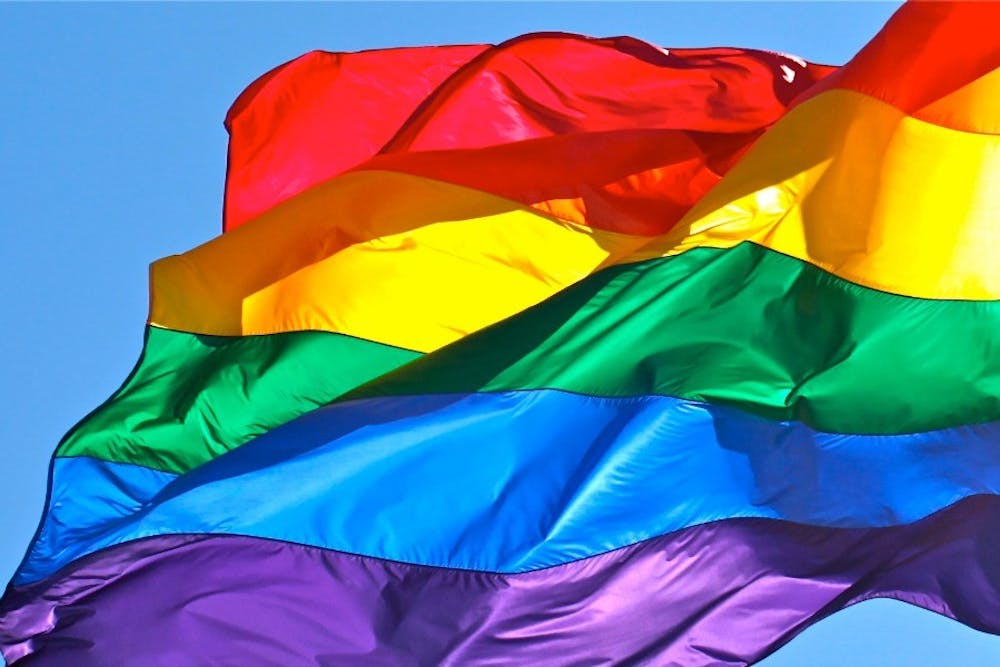Maddie's Matters
By Maddie LaPlante-Dube, Opinion Editor
Sitting down to breakfast at a B&B in west Ireland while on a road trip with my mom, I listened while she and the B&B owner, Maggie, chatted.
Their conversation veered toward the state of the youths in the world today, and Maggie said, "I don't mean to be rude, but truly it seems like everyone is either depressed or, pardon me, gay." I saw my mom recoil but Maggie continued. "It's like the new trend or something. Everyone is gay."
This idea that homosexuality is becoming more widespread because it is trendy has been popularized over the past decade as the older generation watched gay Millennials and now Generation Z make waves, not only in legislation, but also in pop culture. The surge of support for members of the gay community has also been met with scepticism: how could all of these people actually be gay? There're just too many of them! And for those sceptics, gender identity confuses them even more. If you're a girl who identifies as male but likes women, aren't you just a lesbian?
The issues surrounding sexuality and gender have always been around. There has not been an increase in the amount of LGBTQ+ people in the population, but an increase in spaces in which this community is accepted. This increase, not only in understanding, but also in acceptance can be seen in Gen Z's collective identity - based on a new study by Innovation Group, Gen Z might be the most defiant generation of the gender binary ever, with only 48 percent of the Group's sample identifying as totally heterosexual.
Maggie's comment was relevant, especially now.
In China, the gay men and lesbians who are getting "sham" marriages in order to conceal their sexuality and to avoid bringing shame on their family is certainly trendy. In fact, the trend is on the rise: in the past year, dating apps in China such as Queers has allowed gay men to match-make with lesbians. In a country that only just took homosexuality off of their official list of mental disorders in 2001, it is not yet a safe place to come out, so many Chinese LGBTQ+ community members prefer to stay deep, deep in the closet.
New recruits of the LGBTQ+ community in Australia are probably enjoying the many benefits of hopping on the gay bandwagon: namely, none, as Australian legislation continues to refuse the gay community any rights, especially those regarding marriage equality. In parts of the country, same-sex couples are not allowed to adopt, and its Prime Minister, Tony Abbott, has called same-sex marriage an "erosion" of the family.
Even the United States, always the frontrunner in all things trendy, has recently displayed the kind of reception that young people can look forward to upon joining the trend. Now, after the legitimization of gay marriage (which, to be clear, was only a step towards equality for the gay community and not a solution), new legislation allows Mississippi businesses to opt not to serve members of the LGBTQ+ community based on the business owner's religious beliefs. This is exciting for trend setters everywhere because it makes going out to eat/shop/do various life things a fun challenge. For example, they can ask, "Will this place make me feel ashamed of who I am or will it let me get food like everyone else?"
In reality, the new legislation in Mississippi is some of the most depressing law-making this century has seen yet, and that's saying something. Not only does it blur the line between church and state, a basic violation of the constitution, it also effectively encourages hate in the name of the law, under the guise of "state's rights."
Understand that these complaints aren't some liberal rant. The LGBTQ+ community is one that faces persecution in all parts of the world. Being gay or trans isn't trendy. It's scary, especially in a society so dead set on managing identities.

